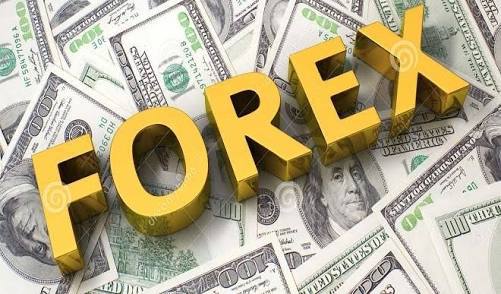The Central Bank of Nigeria has revealed that the foreign exchange reserves have dropped by $1.09 billion in the last two weeks.
The external reserves, which stood at $44 billion in September fell to $43 billion as at October the 15th.
Director of CBN’s Corporate Communications, Isaac Okorafor, says the reserves at $44 billion is sufficient to take care of the nation’s import bill for the next 17 to 20 months.
But the International Monetary Fund has warned Nigeria to be cautious in the use of foreign exchange reserves.
The Central Bank of Nigeria has revealed that the foreign exchange reserves have dropped by $1.09 billion in the last two weeks.
The external reserves, which stood at $44 billion in September fell to $43 billion as at October the 15th.
Director of CBN’s Corporate Communications, Isaac Okorafor, says the reserves at $44 billion is sufficient to take care of the nation’s import bill for the next 17 to 20 months.
But the International Monetary Fund has warned Nigeria to be cautious in the use of foreign exchange reserves.
The Central Bank of Nigeria has revealed that the foreign exchange reserves have dropped by $1.09 billion in the last two weeks.
The external reserves, which stood at $44 billion in September fell to $43 billion as at October the 15th.
Director of CBN’s Corporate Communications, Isaac Okorafor, says the reserves at $44 billion is sufficient to take care of the nation’s import bill for the next 17 to 20 months.
But the International Monetary Fund has warned Nigeria to be cautious in the use of foreign exchange reserves.
The Central Bank of Nigeria has revealed that the foreign exchange reserves have dropped by $1.09 billion in the last two weeks.
The external reserves, which stood at $44 billion in September fell to $43 billion as at October the 15th.
Director of CBN’s Corporate Communications, Isaac Okorafor, says the reserves at $44 billion is sufficient to take care of the nation’s import bill for the next 17 to 20 months.
But the International Monetary Fund has warned Nigeria to be cautious in the use of foreign exchange reserves.
The Central Bank of Nigeria has revealed that the foreign exchange reserves have dropped by $1.09 billion in the last two weeks.
The external reserves, which stood at $44 billion in September fell to $43 billion as at October the 15th.
Director of CBN’s Corporate Communications, Isaac Okorafor, says the reserves at $44 billion is sufficient to take care of the nation’s import bill for the next 17 to 20 months.
But the International Monetary Fund has warned Nigeria to be cautious in the use of foreign exchange reserves.
The Central Bank of Nigeria has revealed that the foreign exchange reserves have dropped by $1.09 billion in the last two weeks.
The external reserves, which stood at $44 billion in September fell to $43 billion as at October the 15th.
Director of CBN’s Corporate Communications, Isaac Okorafor, says the reserves at $44 billion is sufficient to take care of the nation’s import bill for the next 17 to 20 months.
But the International Monetary Fund has warned Nigeria to be cautious in the use of foreign exchange reserves.
The Central Bank of Nigeria has revealed that the foreign exchange reserves have dropped by $1.09 billion in the last two weeks.
The external reserves, which stood at $44 billion in September fell to $43 billion as at October the 15th.
Director of CBN’s Corporate Communications, Isaac Okorafor, says the reserves at $44 billion is sufficient to take care of the nation’s import bill for the next 17 to 20 months.
But the International Monetary Fund has warned Nigeria to be cautious in the use of foreign exchange reserves.
The Central Bank of Nigeria has revealed that the foreign exchange reserves have dropped by $1.09 billion in the last two weeks.
The external reserves, which stood at $44 billion in September fell to $43 billion as at October the 15th.
Director of CBN’s Corporate Communications, Isaac Okorafor, says the reserves at $44 billion is sufficient to take care of the nation’s import bill for the next 17 to 20 months.
But the International Monetary Fund has warned Nigeria to be cautious in the use of foreign exchange reserves.













